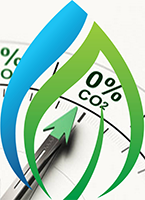
The objective of the Workshop is to improve the understanding of UNECE member States on the role of natural gas in achieving 2030 Agenda for Sustainable Development and the Paris Agreement and in the light of the ongoing decarbonization of the energy system to further explore the synergies between renewable energy and gas.
Context
Work done to date to track progress toward energy for sustainable development has made it clear that there is not a single pathway to the future energy system. Each country has its own starting point in terms of resources, infrastructure, legislative and regulatory framework, and cultural heritage. Consequently, each country has a distinct set of options for how to proceed. Natural gas is considered an essential element in the transition to a sustainable energy system and, under the right conditions, could play a continuing role going forward. However, much of the ECE region seeks increasingly to develop flexible systems that would limit the requirement for gas to fulfill such a role. Decarbonization projects such as power-to-gas, energy storage and renewable, decarbonized and low carbon gases (e.g. green/ blue hydrogen and biomethane) will decrease the environmental impact and carbon footprint of the energy system. Power-to-gas technologies use electricity that cannot be used directly or stored in batteries but can be instead stored as gas within the gas system at minimum cost. Decarbonised gases/fuels do not emit carbon to the atmosphere during their use in transport, heating or energy production. These gases /fuels can also be described as zero-carbon energy carriers. One of the most versatile energy carriers is hydrogen, as it can be produced from renewable energy or natural gas, be transported and stored. Hydrogen forms the basis of chemical industries and is having huge potential in decarbonising transport, heating or energy production across the ECE region.

